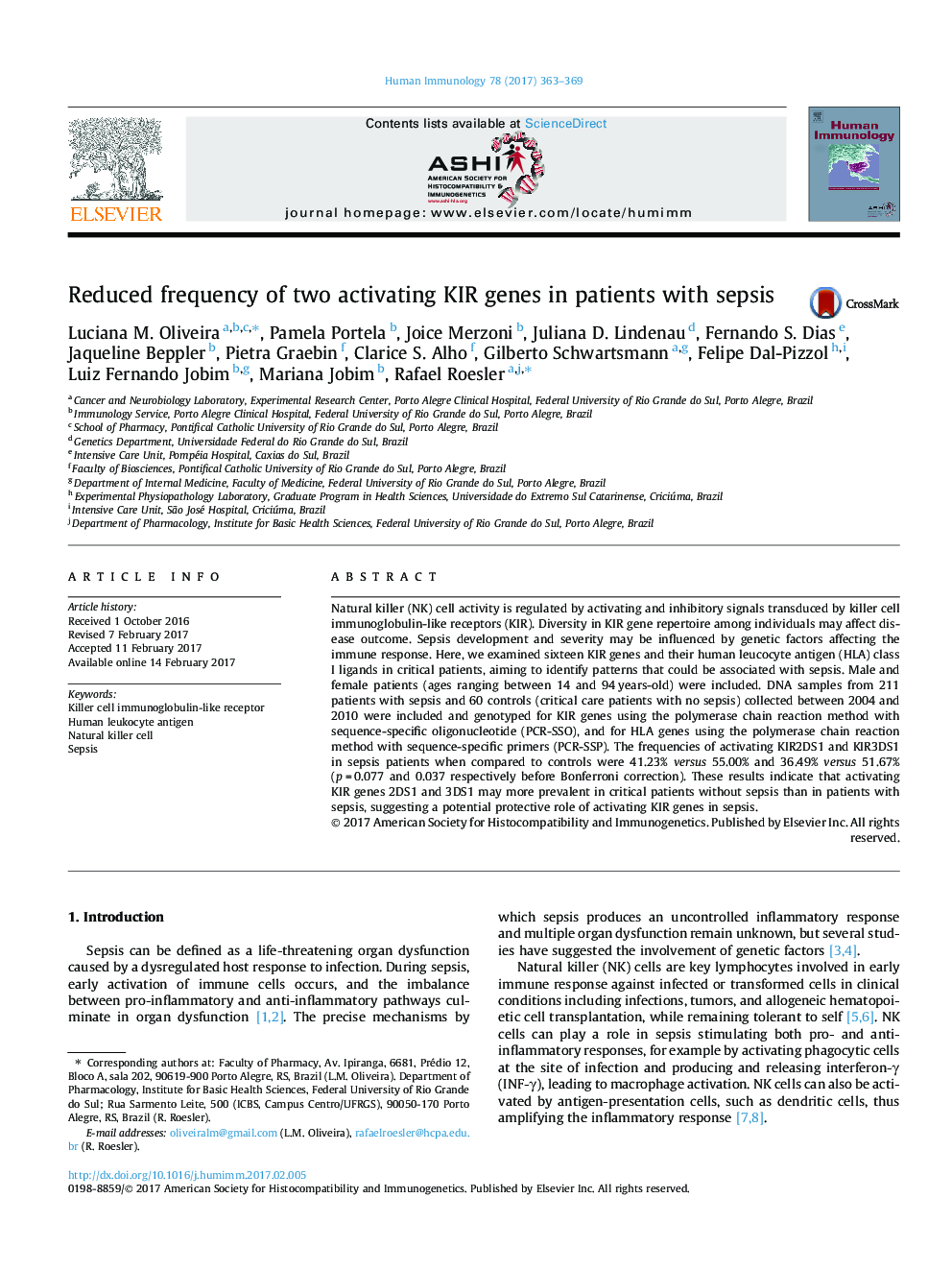| Article ID | Journal | Published Year | Pages | File Type |
|---|---|---|---|---|
| 5666313 | Human Immunology | 2017 | 7 Pages |
Natural killer (NK) cell activity is regulated by activating and inhibitory signals transduced by killer cell immunoglobulin-like receptors (KIR). Diversity in KIR gene repertoire among individuals may affect disease outcome. Sepsis development and severity may be influenced by genetic factors affecting the immune response. Here, we examined sixteen KIR genes and their human leucocyte antigen (HLA) class I ligands in critical patients, aiming to identify patterns that could be associated with sepsis. Male and female patients (ages ranging between 14 and 94 years-old) were included. DNA samples from 211 patients with sepsis and 60 controls (critical care patients with no sepsis) collected between 2004 and 2010 were included and genotyped for KIR genes using the polymerase chain reaction method with sequence-specific oligonucleotide (PCR-SSO), and for HLA genes using the polymerase chain reaction method with sequence-specific primers (PCR-SSP). The frequencies of activating KIR2DS1 and KIR3DS1 in sepsis patients when compared to controls were 41.23% versus 55.00% and 36.49% versus 51.67% (p = 0.077 and 0.037 respectively before Bonferroni correction). These results indicate that activating KIR genes 2DS1 and 3DS1 may more prevalent in critical patients without sepsis than in patients with sepsis, suggesting a potential protective role of activating KIR genes in sepsis.
